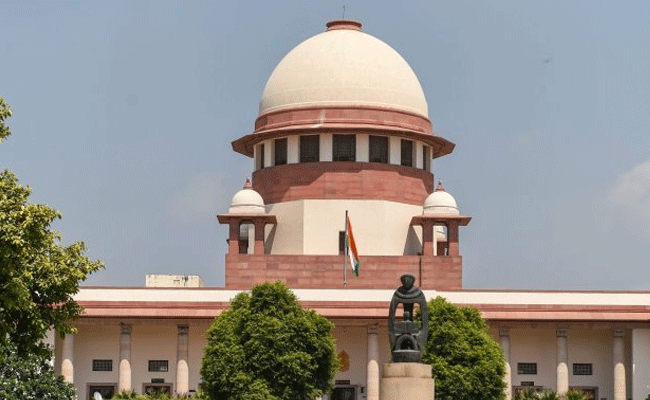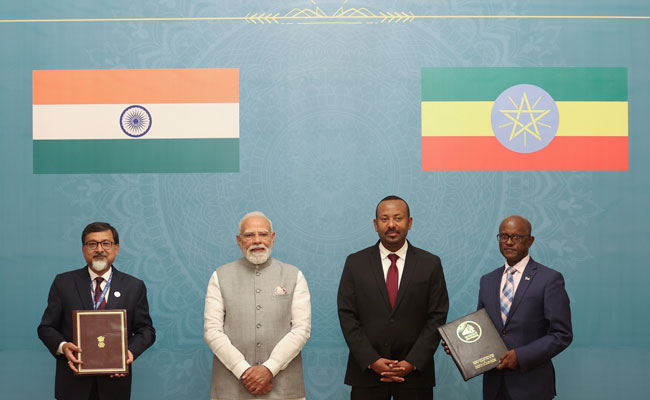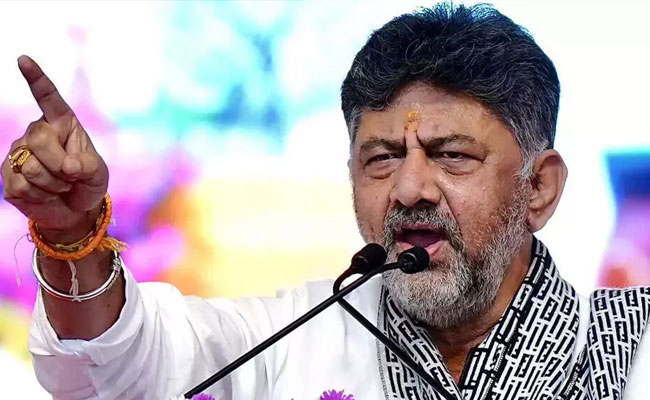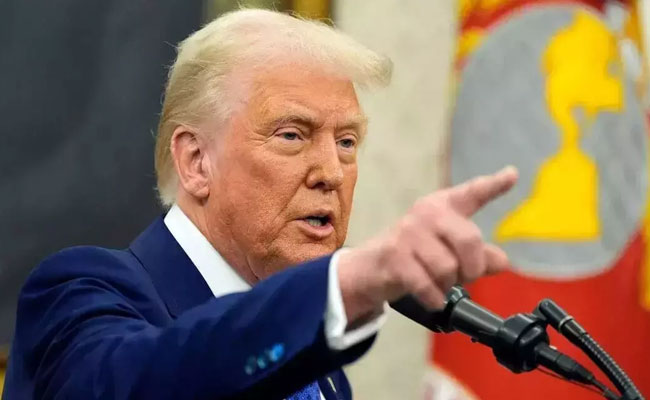New Delhi (PTI): The Supreme Court on Wednesday fixed May 14 for hearing a batch of pleas challenging the appointment of the chief election commissioner (CEC) and election commissioners (EC) under the 2023 law.
A bench of Justices Surya Kant, Dipankar Datta and Ujjal Bhuyan fixed the date after advocate Prashant Bhushan urged the bench to accord urgent hearing in the matter.
Bhushan, appearing for a petitioner NGO challenging the appointment process, said the issue was covered by the Constitution bench verdict of 2023.
Justice Kant told Bhushan that the court will take up the matter on May 14 by cancelling a special bench matter on the said date.
Bhushan said though the matter is listed in the business of the day of the bench, they are urging the court to take it on top of the board.
Justice Kant said the bench will be taking several part-heard matters involving land acquisition on Wednesday.
On March 19, the top court had fixed April 16 for hearing a batch of pleas challenging the appointment of the CEC and election commissioners under the 2023 law.
Bhushan, appearing for petitioner NGO Association for Democratic Reforms, had earlier told the court that the matter involved a short legal question -- whether the 2023 Constitution bench verdict should be followed for the appointment of the CEC and ECs through a panel involving the prime minister, Leader of Opposition and the Chief Justice of India or the 2023 law, which excludes the CJI from the panel.
He had argued that the government, by appointing the new CEC and EC under the 2023 law, was making a "mockery of democracy".
On February 17, the government appointed EC Gyanesh Kumar as the next CEC.
Kumar is the first CEC to be appointed under the new law and his term would run till January 26, 2029, days before the EC is expected to announce the schedule of the next Lok Sabha election.
Vivek Joshi, a 1989-batch Haryana-cadre IAS officer, was appointed as an election commissioner. Joshi (58) would serve in the poll panel till 2031.
According to the law, a CEC or an EC retires at 65 or could have a tenure in the poll panel for six years.
On March 15, 2024, the top court refused to stay the appointments of the new ECs under the 2023 law which excluded the CJI from the selection panel and deferred the hearing on a batch of pleas against the appointments.
The apex court told the petitioners that the March 2, 2023 verdict directed for the three-member panel comprising the prime minister, Leader of Opposition and the CJI to operate till Parliament enacted a law.
The apex court's verdict held that leaving the appointment of the ECs and CEC in the hands of the executive would be detrimental to the health of the country's democracy and the holding of free and fair elections.
The NGO challenged the CJI's exclusion and said the election commission should be insulated from "political" and "executive interference" for maintaining a healthy democracy.
The ADR's plea alleged the verdict was overruled by the Centre without removing its basis and the composition of the selection committee under the new law which amounted to excessive interference of the executive in the appointments and was detrimental to the independence of the poll panel.
Former IAS officers Gyanesh Kumar and Sukhbir Sandhu were recommended to be appointed as ECs in 2024 by a selection panel chaired by Prime Minister Narendra Modi under the new law.
Let the Truth be known. If you read VB and like VB, please be a VB Supporter and Help us deliver the Truth to one and all.
Addis Ababa (PTI): India and Ethiopia on Tuesday elevated their historical ties to a strategic partnership, as Prime Minister Narendra Modi held wide-ranging talks with his Ethiopian counterpart Abiy Ahmed Ali during which they discussed issues of bilateral and mutual interest.
Modi, who arrived here from Jordan on his maiden bilateral visit, was accorded a ceremonial welcome at the National Palace ahead of the bilateral talks, reflecting the vibrant India-Ethiopia relations rooted in shared history and a promising future.
"We are elevating India and Ethiopia relations to a strategic partnership. This step will provide new energy, new momentum and new depth to our ties," Prime Minister Modi said during the delegation-level talks.
He thanked PM Ali for his support in India's fight against terrorism. "The support of friendly countries in this struggle against terrorism holds great significance," Modi said.
"Today, we got the opportunity to deliberate on the key aspects of our cooperation, such as economy, innovation, technology, defence, health, capacity-building and multilateral cooperation. I am pleased that today, we have decided to double the student scholarship for Ethiopia in India," Modi said.
Modi said that India and Ethiopia have shared contact, dialogue, and exchange for thousands of years. The two countries, which are rich in languages and traditions, are symbols of unity in diversity, he added.
"Both countries are democratic powers committed to peace and the welfare of humanity. We are co-travellers and partners of the Global South. On international platforms, we have stood shoulder-to-shoulder," he said.
The two sides signed eight MoUs/agreements, including upgrading ties to 'Strategic Partnership', customs cooperation, establishing data center at the Ethiopian Foreign Ministry, UN Peacekeeping training cooperation, debt restructuring under G20, more ICCR scholarships and AI short courses for Ethiopians, and support for maternal and neonatal healthcare.
Modi said the African Union's headquarters in Ethiopia makes the country a meeting point of African diplomacy. "Inspired by the common vision of an inclusive world, in 2023, India ensured that the African Union became a G20 member," he said.
In 2023, during India’s G20 Presidency, the African Union was admitted as a permanent member of the G20.
Modi said that though this is his first visit, he felt a deep sense of belonging and warmth, reflecting the thousands of years of connection between the two countries.
On his part, Prime Minister Ali said the two countries share over thousands of years of connection through trade, diplomacy, education, culture and even in our food and traditions. "These ties continue to shape a deep friendship, collaboration and mutual respect between our people," he said.
"We also appreciate your consistent message that Africa's priorities must lead the partnership. These kinds of dignified, respectful messages for Africa are very important. Mr Prime Minister, keep pushing. That is the type of message we are expecting from all our trusted friends," Ali said.
He said this aligned fully with Ethiopia's development plan - African-owned, African-led, and African-defined.
"Today, we meet with a clear focus to shape a modern partnership, grounded in sovereignty, self-reliance and practical cooperation. Our cooperation is rooted in equality and South-South solidarity," he said.
"Our economy is performing strongly. Last year, we grew 9.2% and this year we are expecting 10.3% GDP growth. Besides GDP growth, our FDI inflow is also rising big time. India is the leading source for our FDI," he said.
"We have more than 615 Indian companies which are investing in Ethiopia. This all gives our cooperation a strong foundation of trust. I think our decision today that we elevate our historic relationship to a strategic relationship is the right decision," he added.
Ethiopia also conferred its highest award - The Great Honour Nishan of Ethiopia - on PM Modi. He is the first global head of state to receive this award.
Prime Minister Modi also went to the Friendship Park and Friendship Square in Addis Ababa with PM Ali.
In a warm and special gesture, PM Modi was earlier received by his Ethiopian counterpart at the airport and accorded a warm and colourful welcome.
"Ethiopia is a nation with great history and vibrant culture," Modi said.
PM Ali informed his Indian counterpart about the varieties of Ethiopian coffee during informal talks.
"At Addis Ababa airport, took part in a traditional Coffee Ceremony with Prime Minister Abiy Ahmed Ali. The ceremony beautifully highlights Ethiopia’s rich heritage," Modi said.
In a unique gesture, the Ethiopian Prime Minister drove Modi to the hotel.
On the way, he took a special initiative of taking PM Modi to the Science Museum and Friendship Park, which was not in the itinerary.
"Gratitude to Prime Minister Abiy Ahmed Ali for showing me glimpses of Ethiopian history and culture at the National Palace Museum in Addis Ababa. It was a powerful reminder of Ethiopia’s rich traditions," Modi said in a post on X.
The Nobel Peace Prize-winning Ethiopian PM’s special gestures show remarkable respect for Modi, sources said.
"Thank you Ethiopia for a welcome that was unforgettable. The Indian community showed remarkable warmth and affection. India-Ethiopia friendship is going to get even more robust in the times to come," Modi said.
When Modi arrived at the hotel, he was warmly welcomed by the members of the Indian community. Local artists performed dances. Some of them danced on the theme of the popular Hindi song 'Aisa Des Hai Mera' to welcome him.
On Wednesday, Modi will address the Joint Session of Parliament and share his thoughts on India's journey as the "Mother of Democracy" and the value that the India-Ethiopia partnership can bring to the Global South.
PM Modi arrived in Ethiopia from Jordan, where he held a one-on-one meeting with King Abdullah II at the Husseiniya Palace on Monday before the delegation-level talks.
India and Jordan also inked MoUs in the fields of culture, renewable energy, water management, digital public infrastructure and twinning arrangement between Petra and Ellora, aimed at giving a major boost to bilateral ties and friendship.
From Ethiopia, Modi will visit Oman on the final leg of this three-nation tour.





